
Roberto Speranza is an Italian politician of the Chamber of Deputies who served as national secretary of Article One. From 5 September 2019 until 22 October 2022, he has been serving as Minister of Health in the government of Prime Minister Giuseppe Conte and was later confirmed by Prime Minister Mario Draghi. During his tenure, he had to face the COVID-19 pandemic, which deeply affected Italy.

COVID-19 apps include mobile-software applications for digital contact-tracing - i.e. the process of identifying persons ("contacts") who may have been in contact with an infected individual - deployed during the COVID-19 pandemic.

Aarogya Setu is an Indian COVID-19 "contact tracing, syndromic mapping and self-assessment" digital service, primarily a mobile app, developed by the National Informatics Centre under the Ministry of Electronics and Information Technology (MeitY). The app reached more than 100 million installs in 40 days. On 26 May, amid growing privacy and security concerns, the source code of the app was made public.
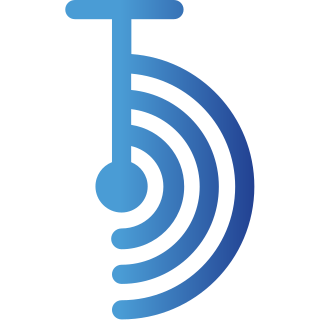
BlueTrace is an open-source application protocol that facilitates digital contact tracing of users to stem the spread of the COVID-19 pandemic. Initially developed by the Singaporean Government, BlueTrace powers the contact tracing for the TraceTogether app. Australia and the United Arab Emirates have already adopted the protocol in their gov apps, and other countries were considering BlueTrace for adoption. A principle of the protocol is the preservation of privacy and health authority co-operation.
TraceTogether is a digital system implemented by the Government of Singapore to facilitate contact tracing efforts in response to the COVID-19 pandemic in Singapore. The main goal is quick identification of persons who may have come into close contact with anyone who has tested positive for COVID-19. The system helps in identifying contacts such as strangers encountered in public one would not otherwise be able to identify or remember. Together with SafeEntry, it allows the identification of specific locations where a spread between close contacts may occur.

The (Google/Apple) Exposure Notification (GAEN) system, originally known as the Privacy-Preserving Contact Tracing Project, is a framework and protocol specification developed by Apple Inc. and Google to facilitate digital contact tracing during the COVID-19 pandemic. When used by health authorities, it augments more traditional contact tracing techniques by automatically logging close approaches among notification system users using Android or iOS smartphones. Exposure Notification is a decentralized reporting protocol built on a combination of Bluetooth Low Energy technology and privacy-preserving cryptography. It is an opt-in feature within COVID-19 apps developed and published by authorized health authorities. Unveiled on April 10, 2020, it was made available on iOS on May 20, 2020 as part of the iOS 13.5 update and on December 14, 2020 as part of the iOS 12.5 update for older iPhones. On Android, it was added to devices via a Google Play Services update, supporting all versions since Android Marshmallow.
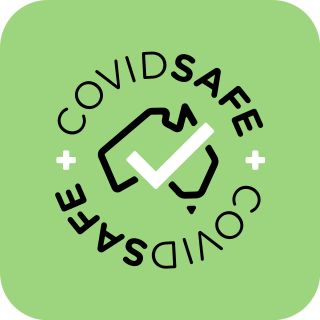
COVIDSafe was a digital contact tracing app released by the Australian Government on 26 April 2020 to help combat the ongoing COVID-19 pandemic. The app was intended to augment traditional contact tracing by automatically tracking encounters between users and later allowing a state or territory health authority to warn a user they have come within 1.5 metres with an infected person for 15 minutes or more. To achieve this, it used the BlueTrace and Herald protocol, originally developed by the Singaporean Government and VMWare respectively, to passively collect an anonymised registry of near contacts. The efficacy of the app was questioned over its lifetime, ultimately identifying just 2 confirmed cases by the time it was decommissioned on 16 August 2022.

The Temporary Contact Numbers Protocol, or TCN Protocol, is an open source, decentralized, anonymous exposure alert protocol developed by Covid Watch in response to the COVID-19 pandemic. The Covid Watch team, started as an independent research collaboration between Stanford University and the University of Waterloo was the first in the world to publish a white paper, develop, and open source fully anonymous Bluetooth exposure alert technology in collaboration with CoEpi after writing a blog post on the topic in early March.

Digital contact tracing is a method of contact tracing relying on tracking systems, most often based on mobile devices, to determine contact between an infected patient and a user. It came to public prominence in the form of COVID-19 apps during the COVID-19 pandemic. Since the initial outbreak, many groups have developed nonstandard protocols designed to allow for wide-scale digital contact tracing, most notably BlueTrace and Exposure Notification.
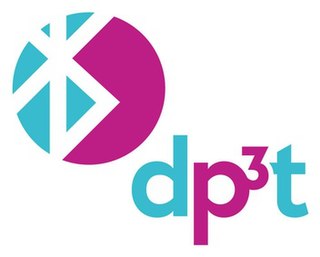
Decentralized Privacy-Preserving Proximity Tracing is an open protocol developed in response to the COVID-19 pandemic to facilitate digital contact tracing of infected participants. The protocol, like competing protocol Pan-European Privacy-Preserving Proximity Tracing (PEPP-PT), uses Bluetooth Low Energy to track and log encounters with other users. The protocols differ in their reporting mechanism, with PEPP-PT requiring clients to upload contact logs to a central reporting server, whereas with DP-3T, the central reporting server never has access to contact logs nor is it responsible for processing and informing clients of contact. Because contact logs are never transmitted to third parties, it has major privacy benefits over the PEPP-PT approach; however, this comes at the cost of requiring more computing power on the client side to process infection reports.

NHS COVID-19 was a voluntary contact tracing app for monitoring the spread of the COVID-19 pandemic in England and Wales. It had been available since 24 September 2020 for Android and iOS smartphones, and can be used by anyone aged 16 or over.
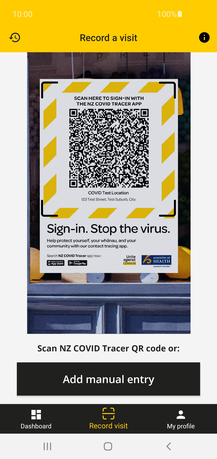
NZ COVID Tracer is a mobile software application that enables a person to record places they have visited, in order to facilitate tracing who may have been in contact with a person infected with the COVID-19 virus. The app allows users to scan official QR codes at the premises of businesses and other organisations they visit, to create a digital diary. It was launched by New Zealand's Ministry of Health on 20 May 2020, during the ongoing COVID-19 pandemic. It can be downloaded from the App Store and Google Play.

Covid Watch was an open source nonprofit founded in February 2020 with the mission of building mobile technology to fight the COVID-19 pandemic while defending digital privacy. The Covid Watch founders became concerned about emerging, mass surveillance-enabling digital contact tracing technology and started the project to help preserve civil liberties during the pandemic.
Bending Spoons S.p.A. is a technology company, founded in 2013 and based in Milan, Italy. The company is known primarily for mobile apps, including Splice, Remini, and 30 Day Fitness. In November 2022, it agreed to acquire Evernote. The acquisition was concluded in January 2023. Bending Spoons is one of the world's leading mobile developers, by number of app downloads.

Corona-Warn-App is the official and open-source COVID-19 contact tracing app used for digital contact tracing in Germany made by SAP and Deutsche Telekom subsidiary T-Systems.

COVID Alert was the Exposure Notification service app for the country of Canada. It launched in the province of Ontario on July 31, 2020, and became available in nearly all Canadian provinces by October of that year, excluding Alberta, and British Columbia.

COVID Tracker Ireland is a digital contact tracing app released by the Irish Government and the Health Service Executive on 7 July 2020 to prevent the spread of COVID-19 in Ireland. The app uses ENS and Bluetooth technology to determine whether a user have been a close contact of someone for more than 15 minutes who tested positive for COVID-19. On 8 July, the app reached one million registered users within 36 hours after its launch, representing more than 30% of the population of Ireland and over a quarter of all smartphone users in the country. As of August 2021, over 3,030,000 people have downloaded the app.
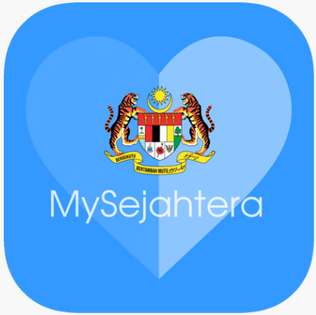
MySejahtera is a mobile application developed by Entomo Malaysia and the Government of Malaysia to manage the COVID-19 outbreak in Malaysia. It can be used to conduct contact tracing, self-quarantine, and also book COVID-19 vaccination appointments.

A COVID-19 vaccine card is a record often given to those who have received a COVID-19 vaccine showing information such as the date(s) one has received the shot(s) and the brand of vaccine one has received, sometimes including the lot number. The card also contains information identifying the recipient and the location where the shot was given. Depending on the country, it could serve as an official document verifying one has received vaccination, which could be required by some institutions, such as a school or workplace, when boarding a cruise ship, or when crossing an international border, as proof that one has been vaccinated.
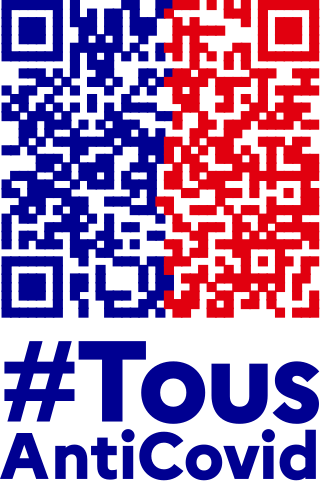
TousAntiCovid is a voluntary contact tracing app for monitoring the spread of the COVID-19 pandemic in France. It was first released on 2 June 2020 and is available on Android and iOS smartphones.















